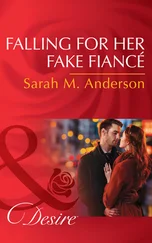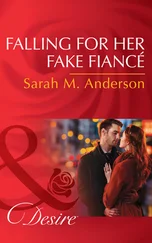“We quite understand,” said Julia, “that in the face of the irrational even the methods of Scholarship are powerless. You were not to know that Sir Robert was the sort of man who consults fortune-tellers.”
I was compelled, however, to decline her kindly meant exculpation: I knew that if I had studied the evidence with the care which I would have devoted to a mediaeval manuscript, I would long ago have realised that Sir Robert was incurably superstitious.
All the things he had done which appeared to be capricious — his sudden requests for conferences and equally sudden cancellations, his apparently irrational confidence that Selena could solve a problem quite outside her province, his decision just before Christmas to proceed with the acquisition of Lupilux — all these were the result of acting in accordance with his horoscope.
“But Hilary,” said Julia, “how do you know?”
“My dear Julia, from what you have told me. Sir Robert is clearly born under the same sign of the Zodiac as you are — and has even greater faith in the predictions of Madame Louisa.”
On the television screen, the horses were lining up for the race.
“I can’t understand it,” said Julia, two and a half minutes later. “I was sure that Madame Louisa was referring to the destitute Irishman. She must have meant someone entirely different.”
We returned to the table, where Julia was consoled with grappa for the disappointment of her financial hopes.
The lunch, it seemed, had been a success. Terry had the dazed expression of a carpenter who has made a firm promise to begin installing bookcases on the following Friday.
Moreover, it appeared that Regina was feeling much improved in health and spirits: the air of London, polluted as it was, had evidently a more beneficial effect on her than the air of Parsons Haver. It now seemed to her to be absurd to return straight home: she decided that after all she would remain in London for a day or two to visit exhibitions and theatres.
“Julia,” she said, as we rose to leave, “aren’t you going to open your present from Maurice?”
Julia took the flat, rectangular parcel from the shelf on which she had placed it and began carefully to undo the ribbon with which it was tied. She removed the festive wrapping and found within a white envelope some sixteen by nine inches, and a smaller envelope. She opened the smaller and read out the note which it contained.
“ ‘Dear Julia — This has brought me so much unhappiness that I can no longer bear to keep it, but I hope that you may find pleasure in it.’ ”
She took from the larger envelope a rectangle of cream-coloured parchment, a little scuffed at the edges, but now safely enclosed in a clear plastic folder. Between margins garlanded with vines, an ornate initial F , Etruscan red edged with gold, almost filled the page; a landscape of fields and mountains glowed green and blue in the space between its two horizontal arms; in the foreground a grey-haired shepherd gazed wistfully at a beautiful young man, lightly clad in a loose, diaphanous tunic; the young man looked back at him with a teasing, equivocal smile. Penned, no doubt, by a master of calligraphy, the only line of text took little effort to read: Formosum pastor Corydon ardebat Alexim —”The shepherd Corydon was on fire with love for the beautiful Alexis.”
The opening line, as my readers will doubtless recall, of the second of Virgil’s Eclogues.
Having no reason to return immediately to Oxford, I yielded to the temptation to spend the weekend in London, where spring seemed at last to be in the air: the pale sunshine had begun to hold a suggestion of warmth and the lawns of Lincoln’s Inn were scattered with daffodils.
There prevailed among my young friends a general sense of joie de vivre, due chiefly to the fact that Terry Carver was at last going to install the bookshelves. Moreover, it was no longer necessary to suspect him of stealing the Virgil frontispiece. How it had come to be lost — whether it had slipped behind the back of a drawer or been absentmindedly misplaced by the Reverend Maurice — we could only speculate; but whatever the explanation, it seemed clear from the fact of its reappearance that it had never left his possession.
It was also gratifying — at least to most of us, though I have to say that Cantrip seemed just a trifle disappointed — to have established that in the present case the unpleasant crime of murder had not after all been committed. Since Sir Robert’s visits to Isabella had been made not under the compulsion of blackmail but in innocent confidence in her psychic powers, there was no reason to attribute her death, or that of the Reverend Maurice, to anything but natural causes.
On the Sunday evening, since Regina’s train left from Victoria, we gathered — all or most of us, I forget quite who was there — for a final glass of wine together in the bar of the Grosvenor Hotel. Regina was in excellent spirits: three days of shops, exhibitions and theatres and a chance encounter with her favourite ex-husband had left her refreshed and invigorated. She had entirely recovered from her cold. She declined, however, to prolong her visit further, though pressed by Julia to do so: when the time for her train drew near, she made her farewells and left us.
“Julia,” said Selena, observing that her friend seemed uncharacteristically downcast, “why are you looking as if she’d left on a three-year expedition to the Amazon jungle? She’s only going to Parsons Haver.”
“I know,” said Julia. “I wish she weren’t.”
“Well, she has to go back sometime. It’s where she lives.”
“Yes, I know. But everyone seems to keep dying there. Daphne’s always saying that something awful is going to happen to people and then it always does.”
I left it to others to reason with the poor creature: I also had a train to catch.
On my return to Oxford, hoping to avoid a tiresome encounter with the Bursar, I dined at a modest Indian restaurant close to the station and returned late enough, as I hoped, to avoid him. On my way back to my rooms, however, I had the ill fortune to encounter him in the quad — he had been lying in wait for me, for all I know, throughout the weekend — and was obliged to listen to ten minutes of his thinly veiled reproaches for my defection on the previous Thursday. He had a heavy cold and smelt of mothballs.
“Bursar,” I said, “forgive my asking, but are you using some interesting kind of aftershave lotion? There is a most curious aroma in the air — not unwholesome, not by any means, but decidedly pungent.”
Tactfully as I had phrased it, the question seemed for some reason to annoy him; still, he did not decline to answer.
“Well, if you must know, Hilary, and since you plainly find the subject far more interesting than my views about the future of our College, I suppose that I may smell somewhat of camphor. I have been rubbing it on my chest — as you may have observed, I have a rather bad cold.”
“My dear Bursar,” I said, “I am so sorry. It’s most thoughtless of me to keep you talking out here on such a cold night — do go back to your rooms and straight to bed with a large whiskey.”
And yet when I had made my escape the smell of camphor lingered in my nostrils, like the tune of a song long after it has been played. It haunted me even in sleep: I had a nightmare in which the Bursar was rubbing my chest with camphor and Julia was telling him to stop or something awful would happen.
I have rooms on the same staircase as our Junior Chemistry Fellow, a pleasant young man despite his having spent his formative years at Cambridge. Thinking that by eight o’clock he would certainly be awake and that soon indeed he might have gone out, I descended at that hour in my dressing gown and knocked with apologetic urgency on his door.
Читать дальше












